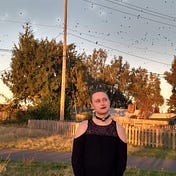
white, trans/agender, femme often disguised as masc, NW-based. exploring gender beyond traditional narratives. alixperrywriting.com

white, trans/agender, femme often disguised as masc, NW-based. exploring gender beyond traditional narratives. alixperrywriting.com